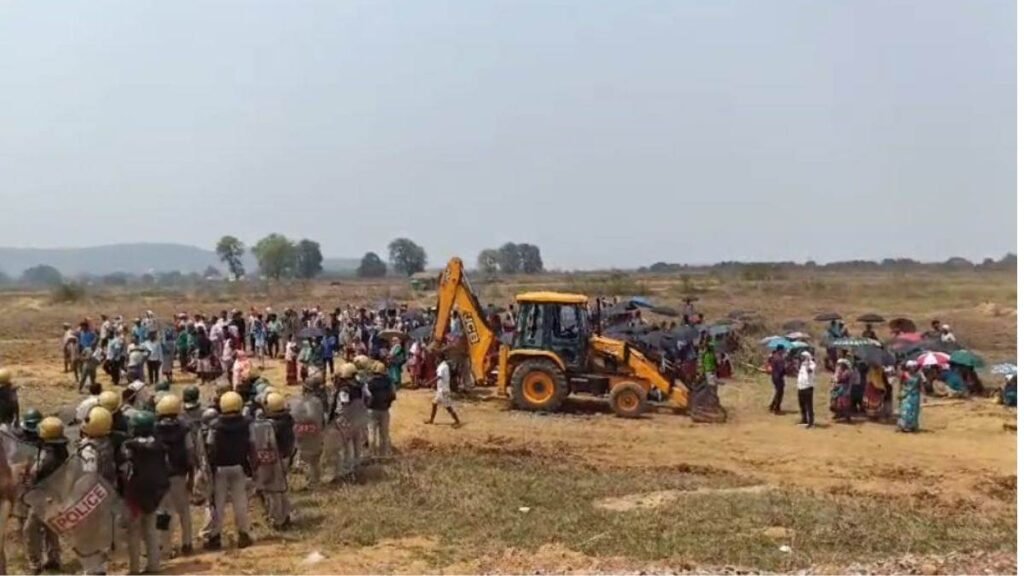
One person was killed and at least 19 others, including an additional tehsildar and several police personnel, were injured in a violent confrontation between slum dwellers and security forces during an anti-encroachment drive in Sundergarh district’s Barkani area on Saturday.
The incident occurred when local authorities attempted to remove alleged encroachments by tribal slum residents on land belonging to the Rourkela Steel Plant (RSP), which has been earmarked for the construction of a dedicated railway line connecting Dumerta to RSP. The move was met with strong resistance from local residents, primarily tribals, who have been opposing the railway project.
According to police, the situation turned tragic when one of the protestors, Etua Oram, stood in front of a JCB machine involved in ground leveling and was crushed to death. This triggered widespread outrage among the residents.
“One person died and 19 others, including civil officials and policemen, were injured during the clash. Some were hurt in stone-pelting by protestors,” said Rourkela DIG Brijesh Kumar Rai. He confirmed that eight platoons of police had been deployed to maintain order, and the situation was now under control.
Among the injured was Purushottam Nayak, the additional tehsildar of Bisra, who sustained serious injuries to his head and body during the violence. All injured individuals, including police personnel, were rushed to the Rourkela Government Hospital for treatment.
Following the death of Oram, tensions further escalated as angry locals gathered at the site and began pelting stones at the authorities. The JCB operator, identified as Somewel Pasi, was reportedly caught and assaulted by the mob.
The protestors have refused to hand over Oram’s body for cremation until the eviction drive is called off. The administration is currently engaged in talks with the community leaders to defuse the tension.
The confrontation highlights the ongoing conflict between developmental projects and the rights of local communities, particularly indigenous populations, who often find themselves at odds with infrastructure expansion plans.
Sources By Agencies

